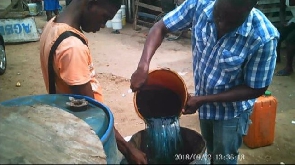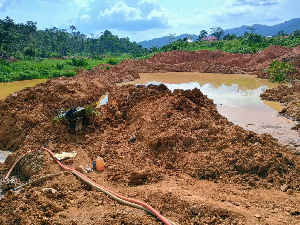The Ministry of Fisheries and Aquaculture Development (MoFAD) has disclosed that some twenty completed automated premix outlets will be opened by December in different locations across the country.
The move, which seeks to streamline discrepancies in the premix fuel distribution chain according to sector minister Mavis Hawa Koomson, will curb issues of middlemen, hoarding and corruption in the premix supply chain.
The minister revealed this to B&FT at the 2023 fishing closed season stakeholder engagement in Accra, and said: “By end of year, the majority of sites – about 20 – will have been completed and be dispensing fuel”.
Data from the Environment for Development (EfD) – a global network for environmental research – indicates that the cost of premix fuel is reduced by 70 percent to fishermen through subsidy.
The organisation says though the country expends US$40million each year on premix subsidies, only 20 percent of the amount goes to fishermen – as the supply system is characterised by illegalities and corrupt activities.
Madam Koomson however explained that automating the supply system is expected to block all loopholes and deter culprits from taking advantage to hoard the commodity.
2023 closed season
Commenting on implementation of the 2023 closed season, she said it is part of a series of strategies to recover fish stocks and ensure sustainable management of Ghana’s fisheries resources.
“We have all come to accept that there is a need to continue the closed season within the same period of July and August as implemented in 2021 and 2022, since it is the period of upwelling; upwelling is the best period for spawning,” she explained.
The ministry noted that the same pattern and months of July to August will be followed by both artisanal and industrial trawlers for this year’s closed season.
In recent times, Ghana’s fisheries sector has been threatened by depletion or decline of fish stocks – as shown by low catches by fishers in recent surveys.
This decline in catches, according to data from MoFAD, is the result of climate change, Illegal, Unregulated and Unreported (IUU) fishing, excessive fishing and overfishing, among other factors.
The Environmental Justice Foundation (EJF) has estimated that Ghana loses more than US$200million to illegal fishing annually, with the canker still endemic.
The fishing industry in Ghana brings over US$500million into the economy every year, and employs over 3 million people in the value chain, according to MoFAD.
Business News of Tuesday, 18 April 2023
Source: thebftonline.com













